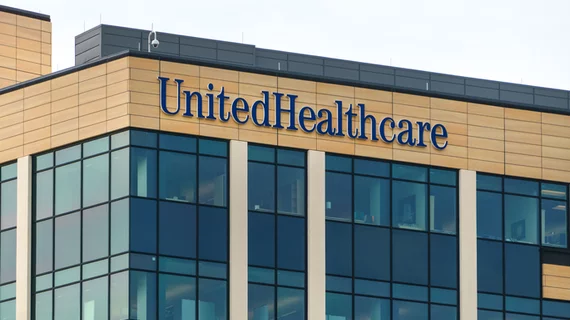UnitedHealthcare briefly knocks state’s largest nonprofit system and its imaging centers out of network
UnitedHealthcare briefly knocked one state’s largest nonprofit health system, along with its outpatient imaging centers, out of network before the two reached an eventual agreement.
Mobile, Alabama-based Infirmary Health announced the contract impasse on June 5. The organization operates four acute care hospitals, serves 11 counties and has more than 700 doctors on its medical staff. This includes about 20 radiologists, with more than a dozen locations providing diagnostic imaging services.
Infirmary’s previous deal with the country’s largest commercial healthcare insurer ended June 4, leaving UHC patients without coverage for outpatient and inpatient services provided across imaging centers, hospitals and freestanding emergency departments.
“Infirmary Health, like most health systems in Alabama and across the nation, is experiencing an unprecedented rise in expenses, including supplies, labor and pharmaceuticals along with payer denials of payment for services already rendered,” the organization said June 5. “While Infirmary Health continues to improve operational efficiencies to manage expenses, it is necessary that for-profit insurers, like UHC, provide fair reimbursement and, ultimately, prioritize the healthcare needs of their insured patients.”
UHC had allegedly been “unwilling to accept reasonable contract terms that recognize the financial challenges of operating hospitals and supporting services.” However, two days later, they had struck a deal to keep Infirmary in UHC’s network. Coverage resumed on June 7, with the decision retroactive to June 4.
“While both organizations work to finalize the terms of our new agreement, we've agreed to restore network access to the health system's hospitals, meaning people enrolled in employer-sponsored commercial plans and our individual family plan are once again able to receive in-network services at Infirmary Health's hospitals at this time,” a UHC spokesperson said by email.
“Infirmary Health’s new agreement with UHC will benefit our patients across the region as well as our physicians and other providers,” Mark Nix, president and CEO of Infirmary Health, said in a separate June 7 announcement. “As a result of these negotiations, we will be able to continue to provide the care our patients need at the level they expect while remaining in network.”
Infirmary holds an overall market share of 54% in southwest Alabama. Along with imaging centers, it also operates 60 physician practices across Mobile and Baldwin counties, maintaining the Infirmary Physician Alliance comprising over 530 docs handling 1.54 million patient visits annually.
The agreement comes amid a growing number of disputes between providers and payers. From 2022 to 2023, the number of publicized disagreements climbed 69%, according to FTI Consulting. Already, there have been 20 public disputes in the first three months of 2024, with half failing to find a quick resolution.
UnitedHealthcare knocked private equity-backed multispecialty provider Envision Healthcare out of its network in late 2020 citing “egregiously high rates.” UHC also has waged a public battle with Radiology Partners over rates, suing the country’s largest imaging group in April 2023. RP scored a key court victory in October, with an arbitration panel granting it a preliminary $153.5 million judgment against UHC.

